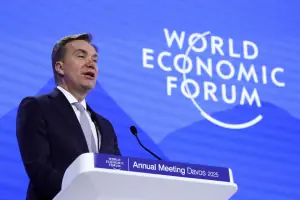Inflation won’t subside anytime soon
3 min readThe government has conceded inflationary pressure would continue for a while in the country even though the country has been on a high growth trajectory compared to the growth observed during the fiscal year 2021.
The Ministry of Finance in its monthly economic outlook for December 2021 said that Pakistan is on a higher growth trajectory, compared to growth observed in fiscal year 2021. However, there is inflationary pressure due to low base effects and surge in global commodity prices; both international food and oil prices are currently quoted at or near the upper regions of the present international commodity price cycles, and drop is expected in the coming months.
The ministry warned that we should also not ignore the impending risks including the concerns of the policy makers about the inflationary effects as year on year inflation has increased in the recent months.
The major contributors of inflation included higher global commodity prices, electricity charges, house rent and transportation cost. However, government is taking administrative, relief and policy measures to ease out the inflationary pressures in the coming months.
The exports of goods and services settled well above the US$3 billion and are expected to increase further in the coming months to reach a new higher level for the foreseeable future, whereas, the government’s fiscal consolidation efforts are paying off in terms of improved fiscal accounts and with revenue mobilisation strategy, overall fiscal deficit is expected to remain within the reasonable level.
The ministry also highlighted that the resurgence of the pandemic owing to latest variant Omicron has increased uncertainty around global economic prospects and consequently, several countries grapple with inflation well above their monetary policy targets.
It is likely that the IMF may downgrade global economic projections due to the rising uncertainty amid possible spread of Omicron variant.
The overall fiscal deficit reduced to 1.1 percent of the GDP (Rs587 billion) in the first four months of FY2022, down from 1.7 percent (Rs775 billion) recorded in the comparable period of last year.
Similarly, the primary balance posted a surplus of Rs206 billion in Jul-Oct FY2022, as compared to Rs156 billion in the same period last year.
The government stated that despite the spread of omicron variant, the cyclical position in the main trading partners remained better but the country should also not ignore the impending risks including the concerns of the policy makers about the inflationary effects and the resulting policy response.
The trend of high frequency variables is encouraging and it is expected that the economy will achieve its growth target as in real sector, agriculture wheat crop has been cultivated on an area of 22.1 million acres (94.5 percent of target area of 23.3 million acres).
During July-November 2022, the agriculture credit disbursement recorded an increase of 3.9 percent and reached Rs488.5 billion (Rs470.1 billion in same period last year).
The farm tractors production has increased, the urea off-take during Rabi 2021-22 (October-November) was 1,088,000 tonnes, which recorded an increase of 15.0 percent over same period last year, while the DAP off take was recorded at 562,000 tonnes, which decreased by 4.1 percent over Rabi 2020-21 (Oct-Nov). The overall LSM posted a growth and 11 out of 15 sub-sectors of LSM have witnessed positive growth during Jul-Oct 2022.
The current account posted a deficit of $7.1 billion (5.3 percent of GDP) for July-November 2022 as against a surplus of $1.9 billion (1.6 percent of GDP) last year, while workers’ remittance has been recorded at $12.9 billion against $11.8 billion last year, reflecting an increase of 9.7 percent.
Portfolio Investment-Public was negative 261.5 million in July-November 2021 last year and now it was recorded at negative 79 million, whereas, total foreign investment (FDI & Portfolio Investment) has increased from $263.4 million to $455.5.
The story was originally published in Business Recorder on December 28 2021.
For the latest news, follow us on Twitter @Aaj_Urdu. We are also on Facebook, Instagram and YouTube.





















Comments are closed on this story.